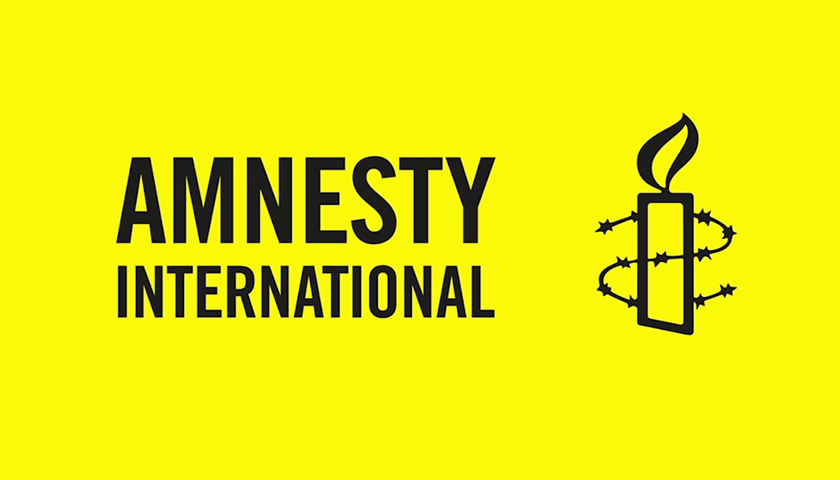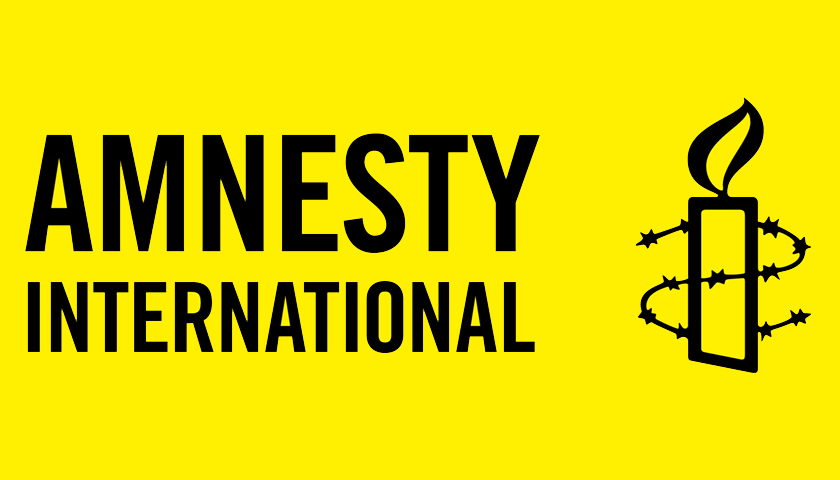Amnesty International UK is inviting entries for its 27th annual Media Awards, a prestigious set of awards that recognise the vital role journalists play and the serious risks they face in highlighting human rights abuses around the world.
The award ceremony will be held on Wednesday 3 April 2019 at BAFTA Piccadilly in central London.
Previous award winners include Marie Colvin, Christina Lamb, Sue Lloyd-Roberts, Robert Fisk, Gary Younge, Nawal Al-Maghafi and Alex Crawford among many others.
Entries can now be submitted at: https://amnesty-media-awards.org.uk/
The closing date for entries is Friday 25 January 2019.
Entries must be from a media outlet based in the UK and published or broadcast for the first time in the UK between 1 January and 31 December 2018.
Award categories
News (written word)
A written-word news report on a current and/or breaking story relating to a human rights issue. This can be print, online or multimedia.
News (broadcast – TV, radio or online audio/film)
A film or audio news report on a current and/or breaking story relating to a human rights issue. This can be TV, radio or online. The entry should be no longer than 20 minutes.
Investigation
An outstanding piece of investigative journalism relating to human rights issues across all media. This can be print, broadcast, online or multimedia and may be a single report or a number of items covering the same story.
Features
A written-word newspaper, magazine, online or multimedia piece that creatively explores topics, issues or stories relating to human rights.
Documentaries (TV & film)
A full-length documentary or film that observes or reports on human rights issues. The entry should be between 20 – 120 minutes duration. It should have been broadcast or available online.
Radio & Podcasts
This can be either excerpts from a series, a full-length radio documentary or podcast, or compilations from a magazine programme, which observe and report on human rights issues. The whole entry (including compilations) should be between 20 – 60 minutes duration. These must have been broadcast or available online.
Photojournalism
A photograph or a series of up to 12 photographs from a portfolio, all or part of which has been published in UK media (newspapers, magazines or online) or on a third-party website. This category is free to enter.
Regional Media
This category recognises excellent local reporting of global human rights stories as well as those from closer to home. It is open to print, online or broadcast entries from UK regional media outlets. This category is free to enter.
Innovation
This category recognises an innovative use of digital tools and/or multimedia techniques to successfully engage people in a human rights story or issue. Entries must have been published for the first time or have had substantial fresh content published during 2018.
The Gaby Rado Award for Best New Journalist
For journalists reporting on human rights issues who have been working for five years or less in paid employment as a journalist. This award was established with the help of the family, friends and colleagues of the journalist Gaby Rado, who died in Iraq in 2003. Entrants should submit one piece but may also provide links to three further pieces of work to support their entry. Finalists will be asked for evidence of their eligibility. This category is free to enter.
Student Journalist
For students in full-time education at a UK university, higher education or further education college at the time of publication or broadcast of their entry. Entries may have been published in print, online or broadcast, either via a student or commercial outlet. Alternatively, it may have been produced as course work as part of media or journalism studies. Entrants should submit one piece but may also provide links to three further pieces of work to support their entry. Finalists will be asked for evidence of their eligibility. This category is free to enter.
Outstanding Impact Award
This is the judges’ choice category, chosen across all entries. The winner will have demonstrated impact in addressing human rights issues and shown commitment and excellence in reporting.
Entries and fees:
For more information on how to enter, the entry criteria and fees, visit: https://amnesty-media-awards.org.uk/
To encourage a wide range of entries, we have established a sponsorship fund to support a limited number of entries from freelance journalists and filmmakers, as well as small digital and broadcast outlets. See the website for more details.
Entries to Regional Media, Photojournalism and Student Journalist categories are free.
For further information on criteria and eligibility, and how to enter please contact:
Charlotte Lodge / 01453 872731 / amnestymediaawards@keystone-group.co.uk

